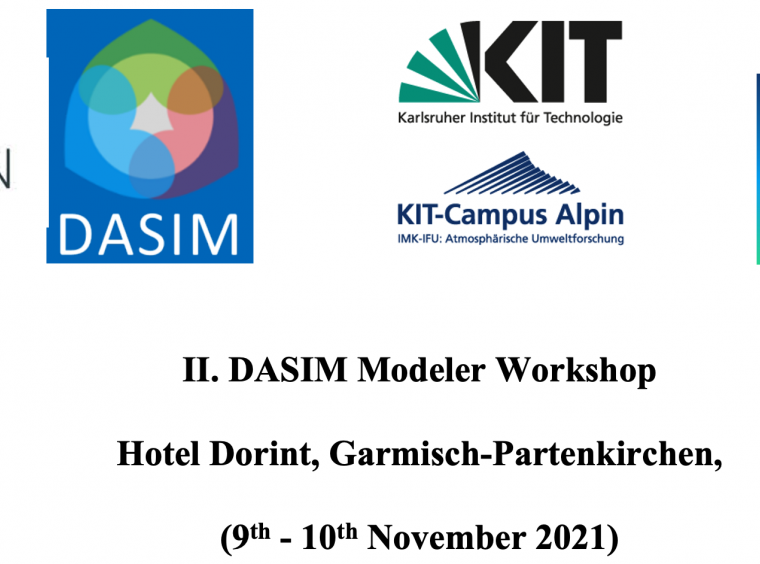Seconod DASIM Modeler Workshop
Ideally, commonly used biogeochemical models might provide adequate predictions of denitrification processes of agricultural soils. However, incomplete process descriptions and inadequate parameterization of models often results in inadequate simulation results of the temporal variability of N2O fluxes at field scale (little is known about the magnitude and temporal variability of N2 fluxes). One of the most important factors for the proper modelling of the denitrification process is the accurate estimation of anaerobic processes in the soil and the temporal and spatial dynamics of changes in soil O2 availability following e.g. rainfall events or incorporation of crop residues. The estimation of this dynamic is quite challenging because of the highly variable soil microsite conditions, which are extremely difficult to measure and model.
To address this issue the coordinated research unit „Denitrification in Agricultural Soils: Integrated Control and Modelling at Various Scales (DASIM)” was initiated to investigate more closely N-fluxes caused by denitrification in response to environmental effects, soil properties and microbial communities.
The main goals of this workshop are the following:
- - clarify the limitations of soil O2 dynamic and the anaerobic volume modelling,
- - collect and compare new and existing approaches for modelling anaerobic soil processes,
- - discuss experimental approaches and available data on anaerobic processes and O2 dynamics in soils
- - outline feasible concepts for improved simulation of soil O2 dynamics,
- - establish a knowledge network on modelling of soil O2 and denitrification dynamics.
